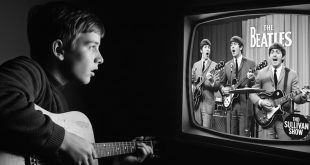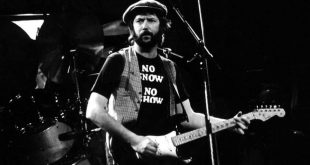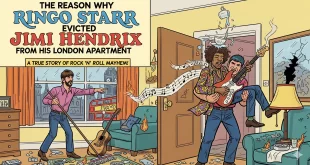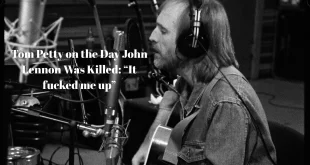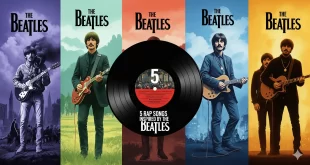When it comes to outspoken opinions, John Lennon never shied away from voicing his thoughts about politics, culture, or even other celebrities. One figure he particularly had no admiration for was Hollywood icon John Wayne. Known as the face of American Westerns and macho war films, Wayne symbolized an old-fashioned brand of patriotism that Lennon rejected. Their worldviews could not have been more different: Wayne embodied conservative American values and often defended military action, while Lennon promoted peace, love, and anti-war activism.
Lennon’s criticisms of Wayne extended beyond simple personal dislike. In the late 1960s and 1970s, Lennon used interviews to highlight how Hollywood — and John Wayne in particular — glorified violence and war at a time when the world was already scarred by the Vietnam War. In a 1969 interview, Lennon openly accused Wayne of being part of Hollywood’s war machine:
“Don’t you see that they sell war all the time, that Hollywood sold war and still is selling war? That John Wayne has been selling war since I was a kid?”
Lennon’s pacifist philosophy stood in direct contrast to Wayne’s on-screen persona. While Wayne represented strength through dominance and battle, Lennon believed that true strength came from compassion and peace — an idea he championed through songs like Give Peace a Chance and Imagine.
His disdain surfaced again in 1980, when Lennon criticized Neil Young’s song “My My, Hey Hey (Out of the Blue)” for glorifying early deaths of cultural figures such as Sid Vicious, James Dean, Jim Morrison, and even John Wayne. Lennon strongly opposed this hero-worship:
“I don’t appreciate the worship of dead Sid Vicious or of dead James Dean or dead John Wayne. It’s the same thing. Making Sid Vicious a hero, Jim Morrison — it’s garbage to me. I worship the people who survive. Gloria Swanson. Greta Garbo.”
He added that he did not want his young son Sean to grow up idolizing people like John Wayne, Sid Vicious, or Johnny Rotten, because, in Lennon’s words, “What do they teach you? Nothing. Death.”
Ironically, Lennon himself would be assassinated only months later in December 1980, becoming one of the most venerated figures in music history despite his rejection of the “dead hero” culture.
Even after Wayne’s death in 1979, Lennon could not resist pointing out the hypocrisy in how the actor’s life was portrayed. Wayne’s fans claimed he had “conquered” cancer like a rugged cowboy, but Lennon dismissed this narrative bluntly:
“They’re saying John Wayne conquered cancer — he whipped it like a man. You know, I’m sorry that he died and all that — I’m sorry for his family — but he didn’t whip cancer. It whipped him.”
Lennon’s cutting remarks show that his disdain for Wayne was more than casual dislike — it was rooted in deep ideological conflict. To Lennon, Wayne was not just a movie star, but a cultural figure who represented values Lennon worked tirelessly to dismantle.
In the end, their clash was symbolic of a larger cultural battle in the 20th century: peace versus war, progress versus tradition, and counterculture versus the old Hollywood establishment.

